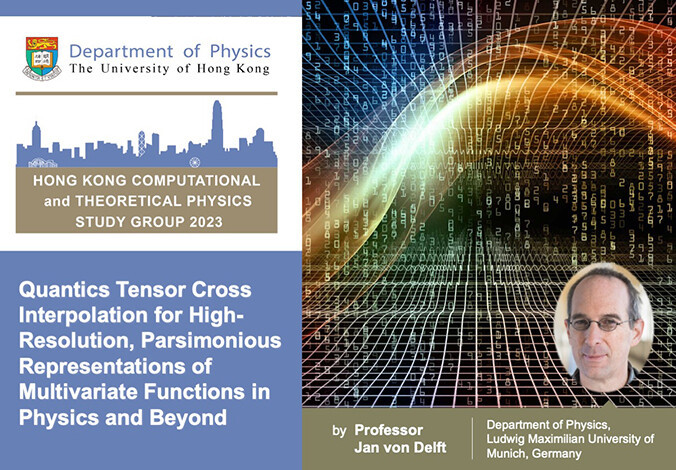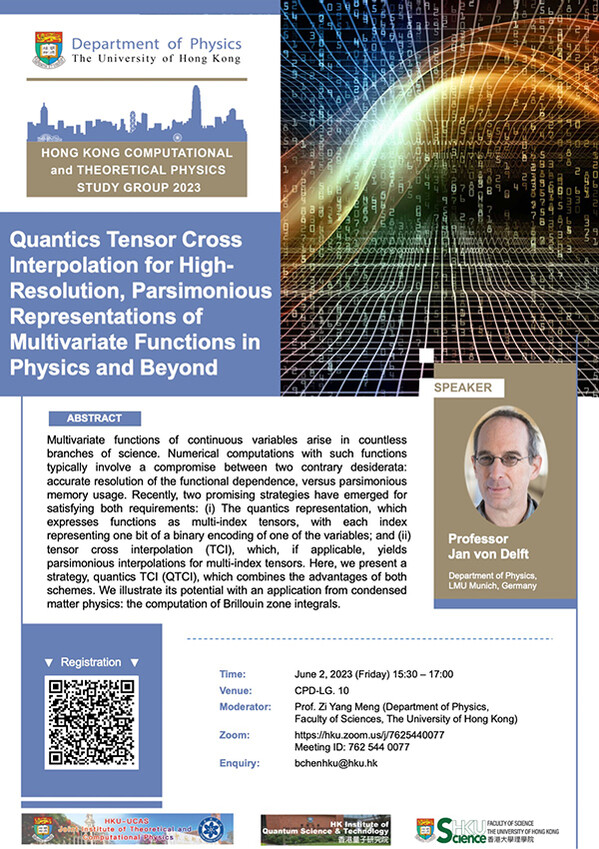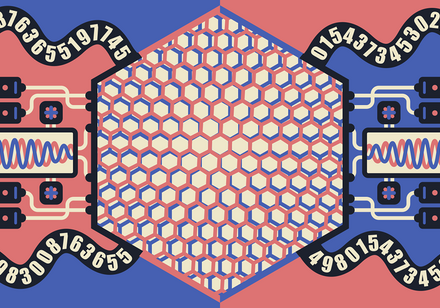Quantics Tensor Cross Interpolation for High-Resolution, Parsimonious Representations of Multivariate Functions in Physics and Beyond

- Date & Time
- June 2, 2023 (Friday) | 15:30-17:00
- Venue
- CPD - LG.10 (Central Podium Levels), Centennial Campus, HKU
- Speaker
- Professor Jan von Delft
Department of Physics, LMU Munich, Germany

Multivariate functions of continuous variables arise in countless branches of science. Numerical computations with such functions typically involve a compromise between two contrary desiderata: accurate resolution of the functional dependence, versus parsimonious memory usage. Recently, two promising strategies have emerged for satisfying both requirements: (i) The quantics representation, which expresses functions as multi-index tensors, with each index representing one bit of a binary encoding of one of the variables; and (ii) tensor cross interpolation (TCI), which, if applicable, yields parsimonious interpolations for multi-index tensors. Here, Professor Jan von Delft and his team present a strategy, quantics TCI (QTCI), which combines the advantages of both schemes. They illustrate its potential with an application from condensed matter physics: the computation of Brillouin zone integrals.
Related link: https://quantummc.xyz/study-group/

Speaker Professor Jan von Delft
Department of Physics, LMU Munich, Germany
Prof. von Delft is the world leading scientist in tensor network (including NRG, DMRG, PEPS) and functional renormalization group methods for quantum many-body systems. He is the Founding member of the Arnold-Sommerfeld-Center for Theoretical Physics, and the Co-coordinator of the “Munich Master Program for Quantum Science and Technology”. In 1995, prof. von Delf received his PhD degree at the department of physics, Cornell University and then worked as postdoctoral assistant at the department of physics, Karlsruhe, Germany, from 1995 to 2000. He worked as professor at Bonn University from 2000 to 2001 and then at LMU from 2001.


